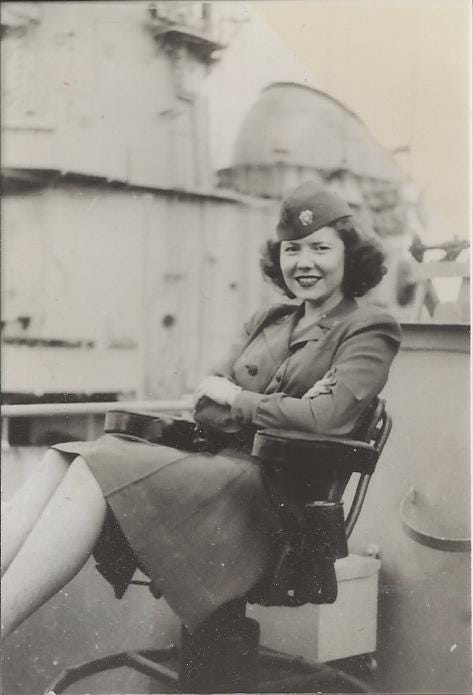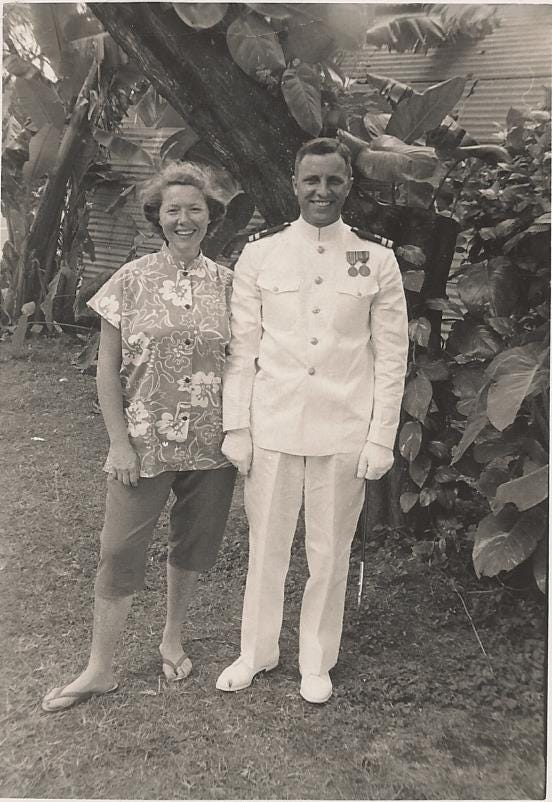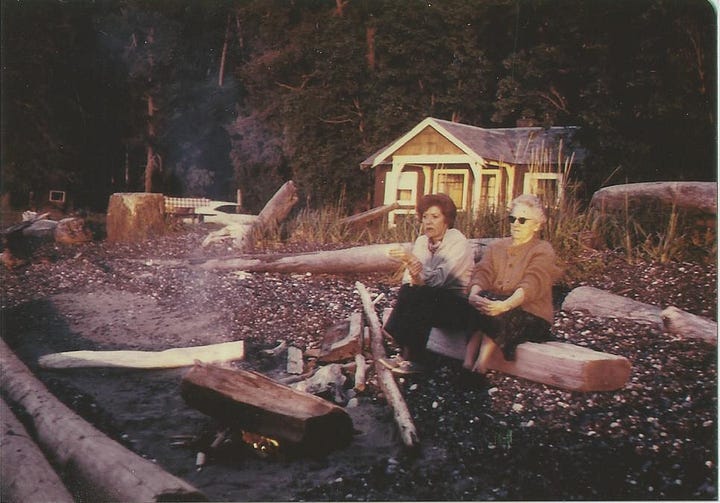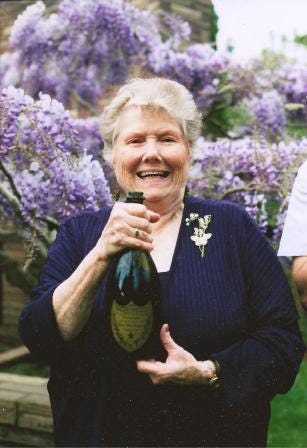In the Kitchen with Mom
Our culinary experience and explorations so often begin by her side, memories of which keep her by our side
In Mortar & Pestle: Classic Indonesian Recipes for the Modern Kitchen, written by Patricia Tanumihardja and her mom, Juliana Evari Suparman, the book’s introduction starts with Patricia reflecting on how she learned to cook, describing ingredients her mom so often used, the familiar and comforting sound of the her making pastes in the mortar and pestle, the smells and the sounds of all the action. “This was how I learned to cook, by observing and mimicking Julia in the kitchen. These moments with her were priceless. I observed every sizzle, crackle, and pop. I smelled aromas sharp and mellow. All my sense were engaged and at every step, there was a lesson to be learned.”
As Patricia points out, Indonesian recipes were typically not written down: “The oral tradition of passing them down from one generation to the next played an important role.” Writing this cookbook had the goal of capturing her mom’s instinctual cooking on the page, helping to bridge that gap for cooks today who rely on recipes, rather than instinct, to cook. All those years at her mother’s side primed her for just that role.
Mothers as a foundational source for our earliest cooking skills and food adventures is such a common story for many of us—whether that’s a touchpoint for cooking meals for family and friends at home, or creating recipes and sharing stories professionally. I do a lot of both and feel very clearly the influence of my mom in my culinary life, regardless of whether I happen to be cooking a recipe of hers (or one inspired by her) or not. I only wish I had the capacity to recall the degree of detail Patricia and others can share from their childhood kitchen. Memories for me are more fuzzy, less concrete, which is a nagging frustration for me. But I try to focus less on what I don’t recall, celebrate what I do, and revel in the feeling deep in my heart that reflects a vivid connection to my mom every time I step into the kitchen.
I feel that particularly strongly around the holidays, planning weeks in advance for Thanksgiving dinner (my favorite meal of the year) and coming up with ideas for Christmas brunch. Mom so loved bringing people together, she and Dad were great hosts—it seems to be something they honed in years of Navy life (they met in Bremerton, Washington, mom was a Navy nurse at the time), though they both were naturally gregarious, warm, generous people. A solid starting point. The pleasure of cooking, of having friends over, of showing care and love for people through food…it’s one of the best gifts I got from my mom. And it’s the best way I know to keep a close connection with her, even nearly 25 years after she passed away. Last week, on May 2, she would have been 102 years old.




With Mother’s Day on Sunday, at least here in the U.S., it brings on an amplified sense of the value in all this recipe-box focus I’ve had lately. And I know that classic mother-child cooking legacy isn’t something everyone can relate to. So while we’re honoring moms with this traditional holiday, I’d like to add a nod of appreciation and love for whoever it is in our lives that has sparked our love of (or, at least, interest in, curiosity about) food and cooking. The spirit of that motherly influence—wherever it may have come from.
Though there’s a timelessness to the generational passing on of recipes and cooking techniques and general kitchen wisdom from parents to children, there has been a particular focus on that theme with some recent new cookbooks. In them, we not only gain insights into the familial cuisine and traditions reflected in those pages, we’re also nudged to consider our own family’s cooking traditions and consider devoting some time to capturing and preserving them as well.
I’ve been hearing a lot about Umma: A Korean Mom’s Kitchen Wisdom & 100 Family Recipes, co-authored by Sarah Ahn (guest on this episode of Your Mama’s Kitchen) and her mom Nam Soon Ahn, though haven’t seen the book yet myself. Dorie Greenspan shares some insights about it in her recent newsletter, along with French at Heart by mother-daughter team Marjorie Taylor and Kendall Smith Franchini, owners of The Cook’s Atelier in Beaune, France. And my friend Hsiao-Ching Chou wrote a most touching book with her teenage daughter Meilee Chou Riddle, Feasts of Good Fortune, with a distinct intentionality about passing recipes and traditions from one generation to the next.
And one last thing that I didn’t expect to share this with you until next week, but the article’s already online so I get to do so now. I was thrilled a few months ago when Providence Cicero reached out to me about the possibility of doing a piece for the Pacific NW Magazine section of the Seattle Times—slated to appear on Mother’s Day, no less. It was a joy to have her over to chat about this Long Live the Recipe Box project/adventure/obsession for “More than Mementos: Cherished recipes offer clues to the past.” I loved sharing a bit of my mom’s story, a few of her recipes, and some of what inspires me to help others gather and preserve cherished recipes.
The handful of comments on that article so far warm my heart to no end. Among them, “There’s something really comforting about using the recipe cards and cookbooks they held in their hands, following their notes along the margins of the books.” And another, reflecting on handwritten recipes of loved ones who are gone, “each reminds me of them and how much I loved them all. … Recipes are very personal and bring back good memories. Thanks for this reminder.”




Thank you for your story in Pacific mag. I have dozens of my mom’s recipe cards that look just like that chili con queso! A old wooden recipe box choke full of typed cards and some hand written. I sometimes pull them all out and look at each one.
A lovely piece—both this one and Provi’s!